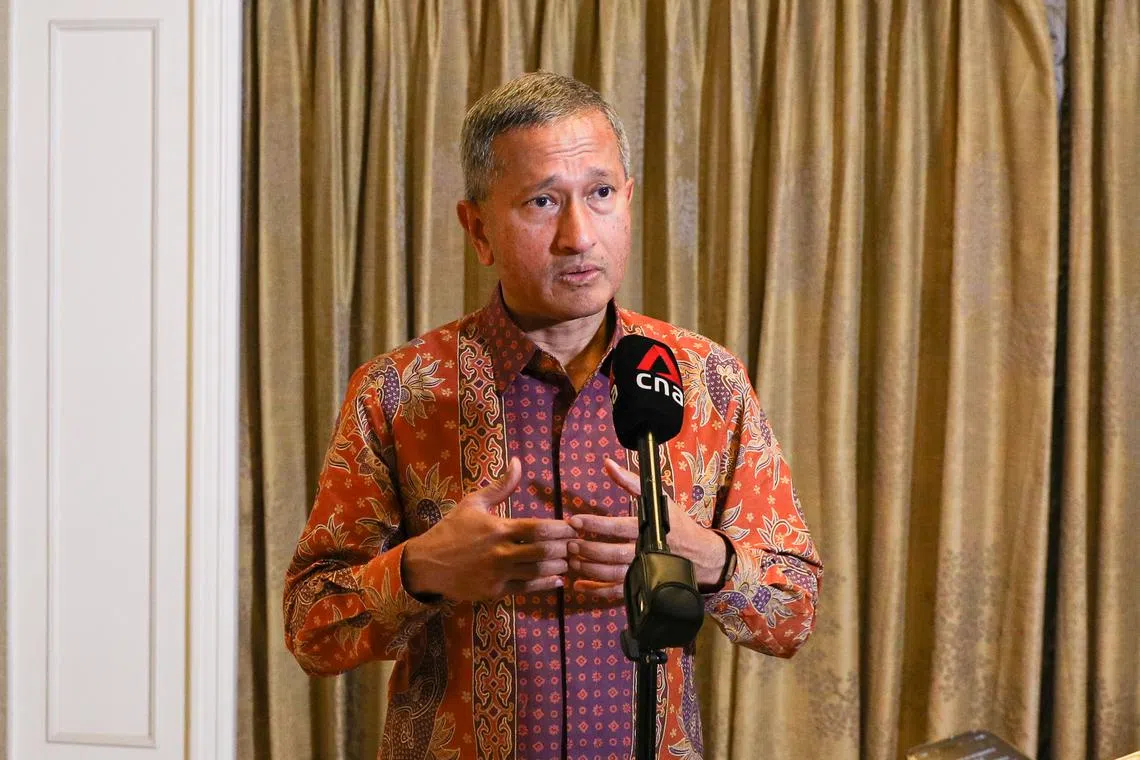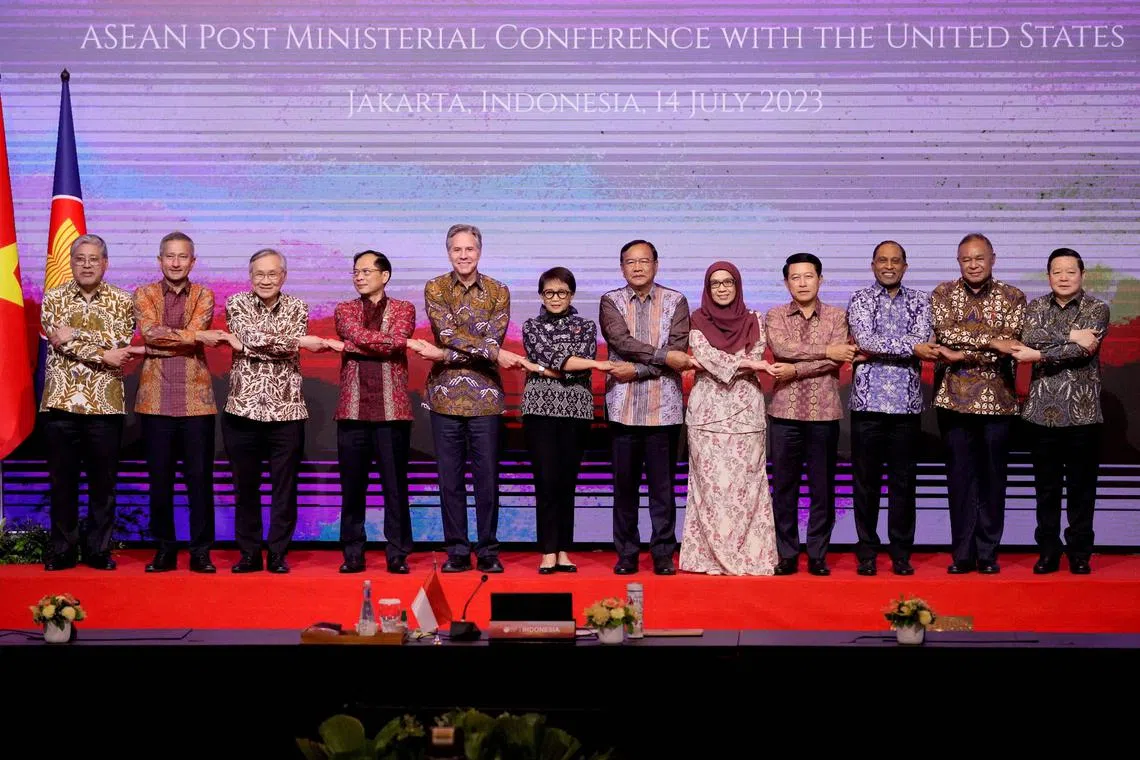Asean has ‘convening ability’ and strives for peace in the region: Vivian
Sign up now: Get ST's newsletters delivered to your inbox

Foreign Minister Vivian Balakrishnan said South-east Asia is not about choosing sides.
PHOTO: MFA
Follow topic:
JAKARTA - Asean’s ability to allow nations to form partnerships that encourage peace, stability and development in the region places a premium on its “convening ability”, said Singapore’s Foreign Minister Vivian Balakrishnan on Friday.
Wrapping up the bloc’s series of meetings
“We’re not choosing sides, we’re not forming blocs. We want everyone to have a stake in peace, stability (and) development in Asean,” he said.
“We want more investments. We want more trade. We want more interoperability. And that kind of open, inclusive architecture is one which we believe will create a more peaceful, more stable and a safer world.”
Such a view is encapsulated in the Asean Outlook on the Indo-Pacific (AOIP), he noted.
The AOIP, an initiative led by Indonesia that was signed in 2019 by Asean leaders at the 34th Asean Summit, lays out the bloc’s common position on regional cooperation, security and prosperity, as well as its stance on not taking sides with any major powers competing for influence in the region.
Although Asean’s external partners have their own versions of an Indo-Pacific strategy, these plans should dovetail into Asean’s outlook, said Dr Balakrishnan.
He stressed that the clear message from the outlook is that South-east Asia is not about choosing sides.
“We are interested in trade. Trade is strategy in our part of the world. I think that message also has been received unambiguously by all our dialogue partners, including the superpowers,” he said.
“That... is a point which we should not take for granted, because we are trying to avoid the bad old days of the Cold War, of proxy wars, when South-east Asia was divided, or worse, an arena for proxy wars.”
Asean foreign ministers on Friday wrapped up the 56th Asean Foreign Ministers’ Meeting and related meetings in Jakarta, where the bloc had discussed regional issues.
The leaders also met their counterparts from more than 15 nations, both in small- and large-group settings, where the ministers talked about international developments as well as ways to enhance regional peace and stability. Among the countries that were represented are the United States, China, Japan and South Korea.
“Asean remains relevant and has convening ability. Everyone that’s relevant is in town... So Asean’s ability to convene and bring people around the table remains as salient as ever before,” said Dr Balakrishnan.

(From left) Philippine Foreign Secretary Enrique Manalo, Singapore Foreign Minister Vivian Balakrishnan, Thai Foreign Minister Don Pramudwinai, Vietnamese Foreign Minister Bui Thanh Son, US Secretary of State Antony Blinken, Indonesian Foreign Minister Retno Marsudi, Cambodian Foreign Minister Prak Sokhonn, Brunei’s head of senior official delegate Johariah Wahab, Laotian Foreign Minister Saleumxay Kommasith, Malaysian Foreign Minister Zambry Abdul Kadir, Timor-Leste Foreign Minister Bendito dos Santos Freitas and Asean secretary-general Kao Kim Hourn at the Asean Post Ministerial Conference with the United States at the Asean Foreign Ministers’ Meeting in Jakarta on Friday.
PHOTO: AFP
When asked about how the meetings went over the past week, the minister said the tone of conversations this year was positive and constructive.
Speeches that were made by the countries involved in the meetings were “more amenable to dialogue”, and Dr Balakrishnan attributed this to the pace of recovery from Covid-19.
Although this does not mean that differences between countries disappear, it does improve the tone of conversations, he noted, adding that people consequently try to avoid unnecessary arguments or conflict.
“I think everyone is acutely aware that the post-pandemic recovery, actually, is rather tepid. And everyone therefore is also aware this is not the time to have unnecessary confrontations or global conflicts,” he said.
In a Facebook post on Friday, Dr Balakrishnan made special mention of two large-group meetings that the Asean ministers had with the bloc’s partners earlier that day.
“The successful convening of the East Asia Summit and the Asean Regional Forum today demonstrates Asean’s centrality, relevance and convening power. Glad that the speeches this year were more positive and constructive,” he said.


